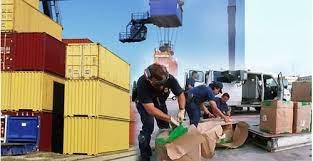Clearance Support Agent

In the complex and dynamic landscape of modern business operations, there exists a vital yet often overlooked role: that of the Clearance Support Agent. While their title may not immediately evoke glamour or prestige, these individuals play a pivotal role in ensuring the smooth flow of goods and services across borders, adhering to regulatory requirements, and facilitating trade transactions. In this article, we delve into the responsibilities, challenges, and importance of Clearance Support Agents in today’s interconnected global economy.
Understanding the Role:
At its core, the role of a Clearance Support Agent revolves around facilitating the movement of goods across international borders. Whether it’s imports, exports, or transit shipments, these professionals act as intermediaries between businesses, regulatory authorities, and transportation carriers. Their primary objective is to ensure that shipments comply with all relevant customs regulations, tariffs, and trade agreements.
Responsibilities of a Clearance Support Agent:
- Customs Documentation: One of the fundamental responsibilities of a Clearance Support Agent is preparing and processing customs documentation. This includes completing forms, declarations, and other paperwork required for the clearance of goods through customs checkpoints.
- Tariff Classification: Clearance Support Agents must accurately classify goods according to the Harmonized System (HS) codes, which determine the applicable tariffs and duties. Proper classification is crucial for compliance and can significantly impact the cost of imports and exports.
- Risk Assessment: They assess the risk associated with each shipment, considering factors such as the nature of goods, origin, destination, and regulatory compliance. This involves identifying potential issues or discrepancies and implementing strategies to mitigate risks effectively.
- Communication and Coordination: Effective communication is paramount in this role. Clearance Support Agents liaise with various stakeholders, including shippers, carriers, customs officials, and internal departments, to coordinate logistics, resolve issues, and ensure timely clearance of shipments.
- Regulatory Compliance: Staying abreast of evolving customs regulations, trade agreements, and compliance requirements is essential. Clearance Support Agents must interpret and apply these regulations accurately to avoid penalties, delays, or disruptions to supply chains.
- Problem Solving: They must be adept at troubleshooting and resolving issues that arise during the clearance process. This may involve addressing discrepancies in documentation, resolving disputes with customs authorities, or navigating unexpected challenges.
- Continuous Improvement: As part of their role, Clearance Support Agents continually seek opportunities to streamline processes, enhance efficiency, and optimize compliance procedures. This may involve leveraging technology solutions, implementing best practices, or providing training to stakeholders.
Challenges Faced by Clearance Support Agents:
The role of a Clearance Support Agent is not without its challenges. Some of the key challenges include:
- Complex Regulatory Environment: Navigating the intricate web of customs regulations, trade policies, and compliance requirements can be daunting. Clearance Support Agents must stay updated on changes and interpret regulations accurately to ensure compliance.
- Time Sensitivity: In today’s fast-paced business environment, time is of the essence. Clearance Support Agents often work under tight deadlines, especially when dealing with time-sensitive shipments or perishable goods.
- Global Supply Chain Dynamics: With supply chains spanning multiple countries and continents, Clearance Support Agents must contend with diverse logistical challenges, cultural differences, and geopolitical factors that can impact trade operations.
- Technological Advancements: While technology has streamlined many aspects of customs clearance, it has also introduced new complexities. Clearance Support Agents must adapt to evolving technology platforms, software systems, and data exchange protocols.
- Risk Management: Assessing and mitigating risk is a constant concern for Clearance Support Agents. They must anticipate potential risks, such as regulatory non-compliance, security threats, or geopolitical instability, and develop strategies to mitigate these risks effectively.

The Importance of Clearance Support Agents:
Clearance Support Agents play a critical role in facilitating international trade and commerce. Their contributions are indispensable for the following reasons:
- Facilitating Trade: By ensuring the efficient clearance of goods through customs checkpoints, Clearance Support Agents facilitate the smooth flow of trade across borders, enabling businesses to access global markets and consumers.
- Compliance and Risk Mitigation: Compliance with customs regulations is essential for businesses to avoid penalties, fines, or legal consequences. Clearance Support Agents help businesses navigate complex regulatory requirements and mitigate risks associated with international trade.
- Supply Chain Efficiency: Timely clearance of shipments is crucial for maintaining supply chain efficiency and meeting customer demands. Clearance Support Agents help minimize delays, disruptions, and bottlenecks in the supply chain, thereby enhancing operational efficiency.
- Cost Optimization: Proper classification of goods and adherence to tariff regulations can significantly impact the cost of imports and exports. Clearance Support Agents help businesses optimize costs by ensuring accurate tariff classification and minimizing duties and taxes.
- Customer Satisfaction: Smooth and hassle-free customs clearance enhances the overall customer experience. Clearance Support Agents play a vital role in ensuring timely delivery of goods, reducing transit times, and resolving any issues that may arise during the clearance process.
Conclusion:
In conclusion, Clearance Support Agents are unsung heroes of international trade, playing a crucial role in ensuring the smooth flow of goods across borders. Their responsibilities encompass a wide range of tasks, from preparing customs documentation to mitigating risks and resolving issues. Despite facing numerous challenges, Clearance Support Agents continue to play an indispensable role in facilitating trade, enhancing supply chain efficiency, and ensuring compliance with customs regulations. As global trade continues to evolve and expand, the importance of Clearance Support Agents in facilitating cross-border transactions cannot be overstated.
